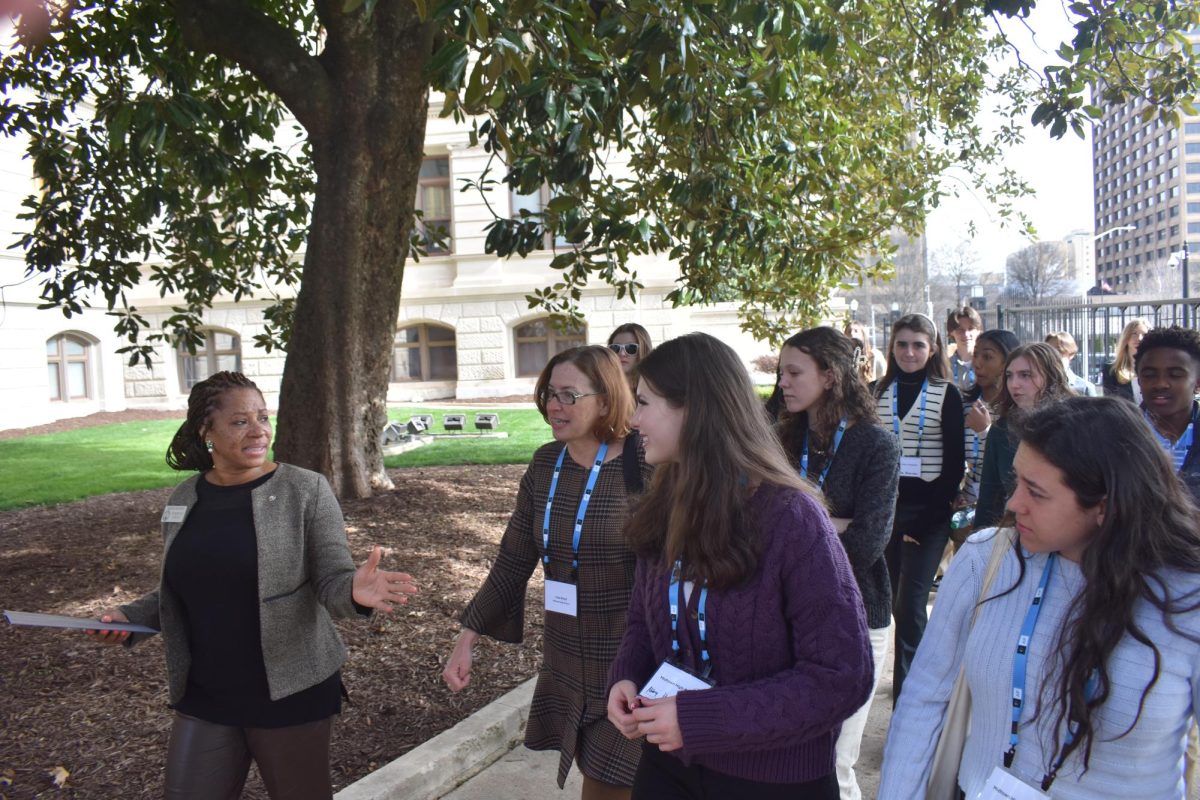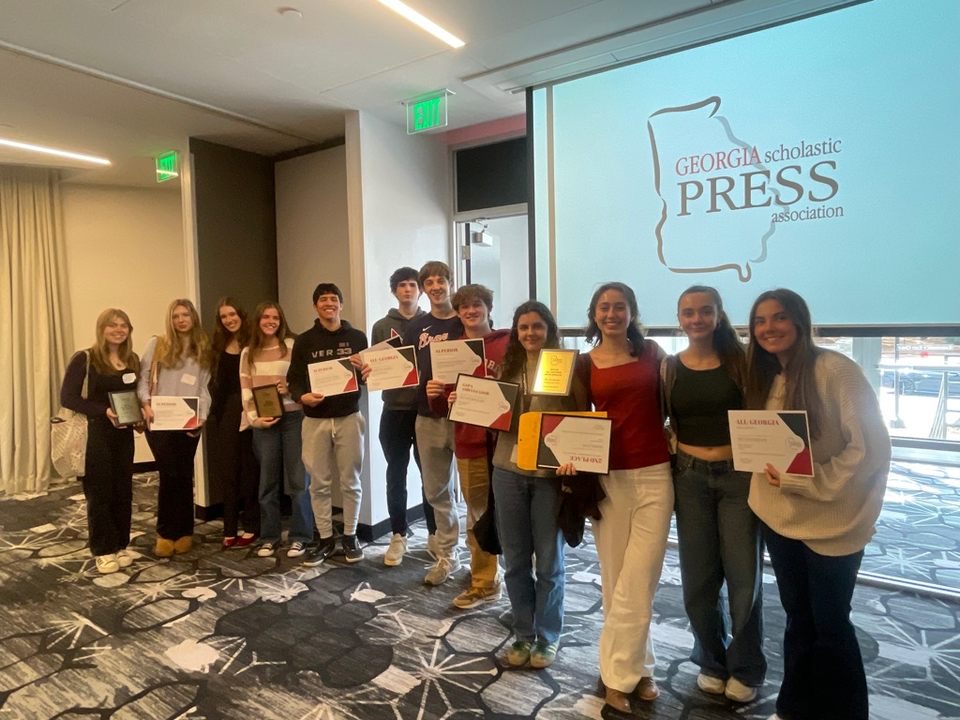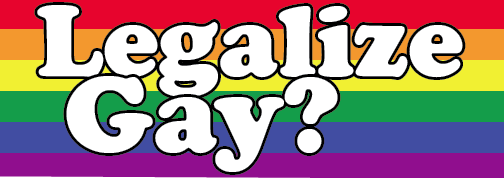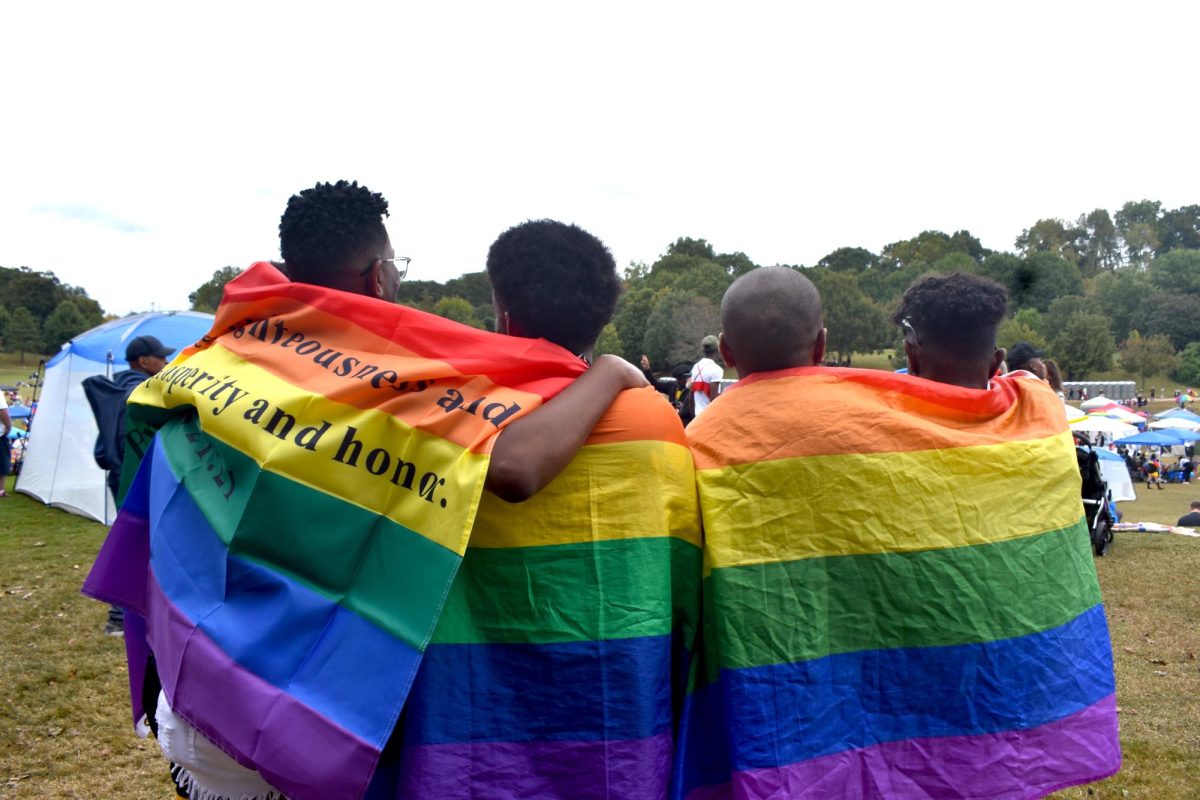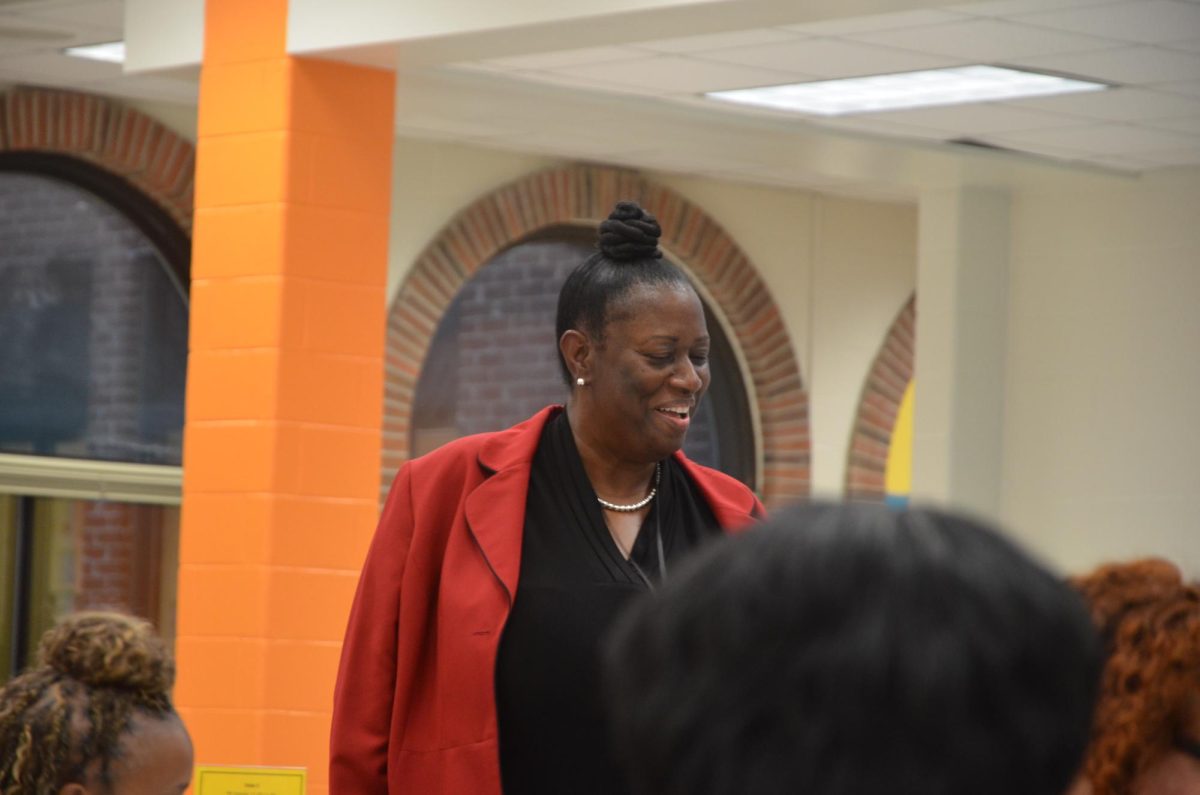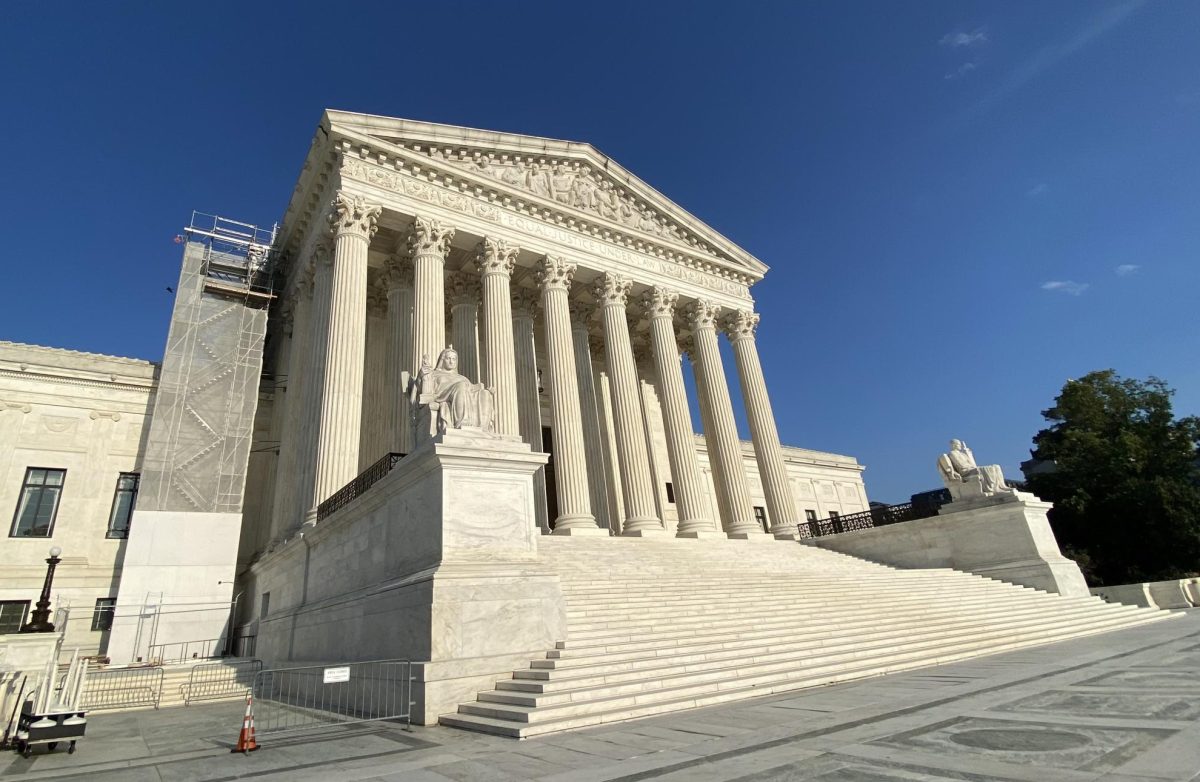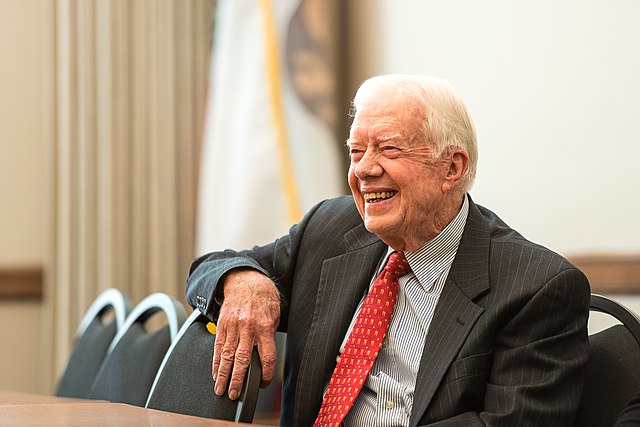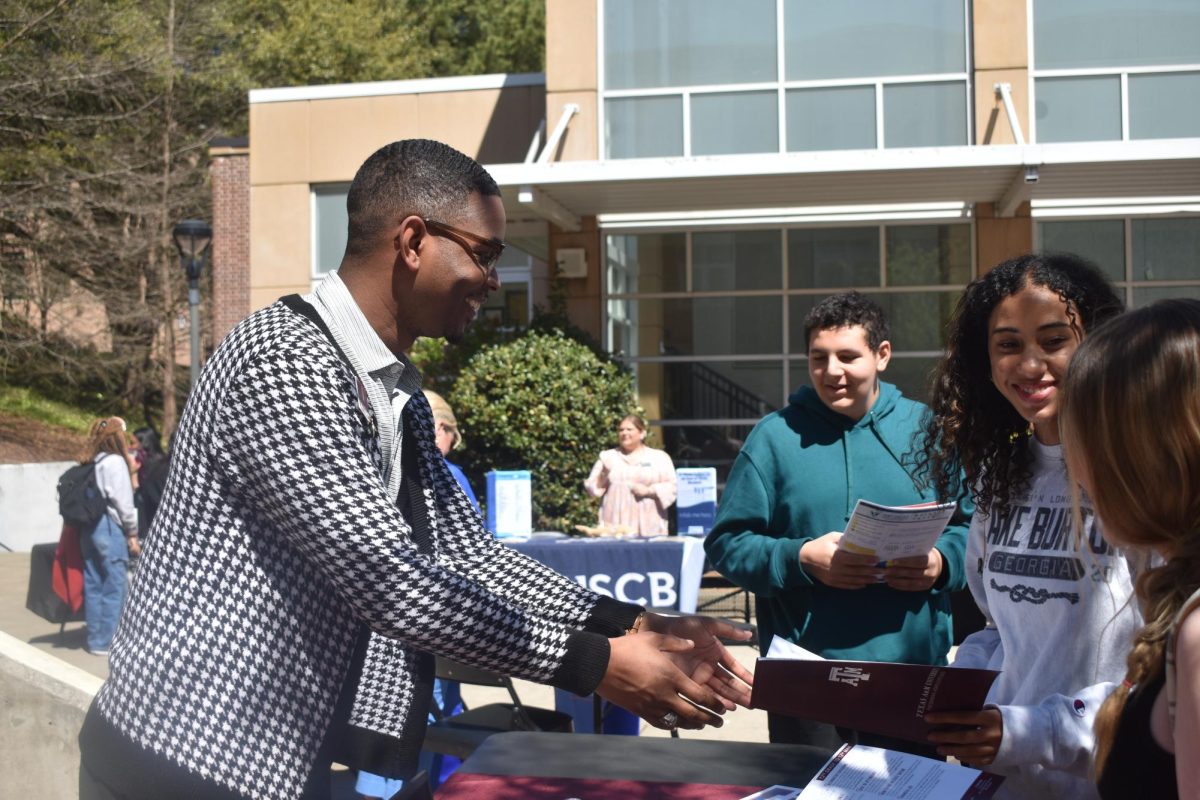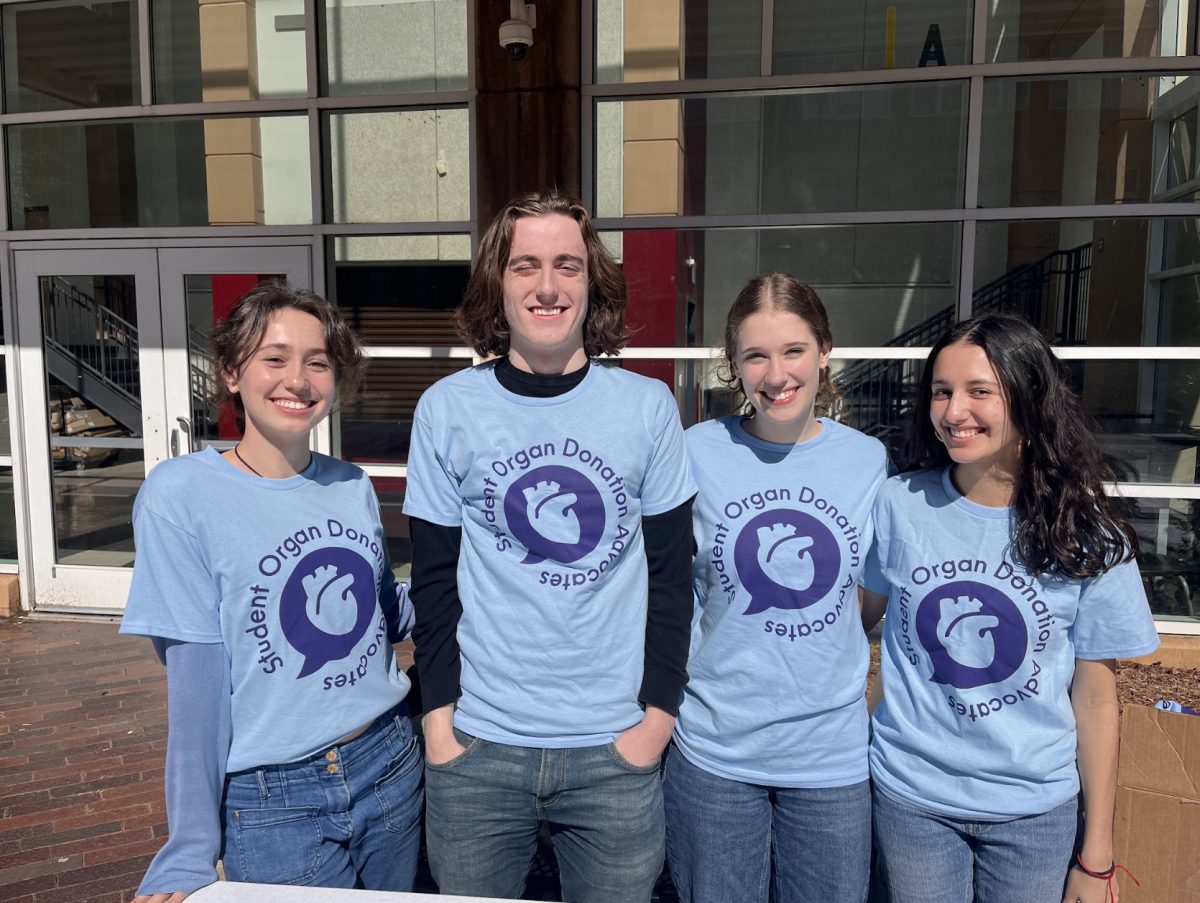When junior Victoria Stuart’s father, a Baptist preacher, came out in Jacksonville, Fla., Stuart’s classmates at Trinity Christian Academy told her she would go to hell. Stuart was 3 years old.
“The Bible says that man should not lie with another man and the woman should not lie with another woman and that that was an abomination,” she said. “In second grade my music teacher actually told me that I shouldn’t drink after my dad because since he’s gay he automatically has AIDS and if I drink after him that I would get AIDS, too.”
For the first time, the U.S. Supreme Court will deliberate on the constitutionality of bans on gay marriage and access to federal benefits for same-sex couples. The justices have heard cases challenging both Proposition 8 in California and the Defense of Marriage Act.

California voters passed Prop 8, a constitutional ban on gay marriage designed to overturn a ruling by the state supreme court that legalized gay marriage, via referendum in 2008. Congress passed DOMA in 1996. This federal law delegated the power to recognize gay marriages to the states in section 2 of the act, meaning that if someone gets married in one state, their marriage may not be recognized as legal in another. DOMA also prevents gay couples from accessing federal benefits.
During the hearings, which began on March 26, Justice Anthony Kennedy, widely considered the court’s swing justice, expressed the concern of many proponents of gay marriage.
“There are some 40,000 children in California, according to the red brief, that live with same-sex parents and they want their parents to have full recognition and full status,” he said. “The voice of those children are important in this case, don’t you think?”
According to the 2011 census, there are approximately 594,000 same-sex households in the United States, roughly 115,000 of which have children. Georgia’s 2010 census indicates that of those 594,000 couples, 21,318 live in Georgia and 4,179 of those couples are raising children.
A Family Affair
As a baby over 17 years ago, senior Remy Johanson Murray was left on the side of the road in Chowchin, China, picked up by the police and placed in an adoption center. After a long, tedious process, she was adopted by her two moms, Marie Johanson and Marie Murray. The family has pictures of Johanson and Murray stamping Remy’s footprints and fingerprints on the legal document to mark that special day.
“I’m really happy my parents found each other then came to China and brought me here because I feel like I have a much better life here,” Johanson-Murray said.
Johanson and Murray did not go through the adoption process as a gay couple, however. Murray officially adopted Remy from China, then she cross-adopted her with Johanson. This way, both Johanson and Murray had custody. The same steps were taken when Remy’s younger sister, Martika, was adopted, except Johanson first adopted Martika in China.
Sophomore Anna Stearns-Bernhart was dropped off at a police station in LePing, China when she was a baby, and later adopted by her two moms Jo Stearns and Michelle Bernhart. The new moms had to sign several pieces of paperwork while they were in the United States, and then they were sent a picture of their future child. Stearns then traveled to China where she spent several days filling out paperwork and enduring other verifications before finally seeing their child in person.
“I don’t think [the adoption agency] wanted a gay family to adopt, so that might be one of the reasons why my other mom didn’t go, but she also had to take care of Alex (my older brother),” Stearns-Bernhart said.
The only knowledge freshman Joshua Ortega has of his father is a picture of him when he was 3 years old and some basic information. His moms went to a sperm bank when they wanted to conceive.
“Most sperm banks are super specific on what they want,” he said. No genetic disorders three generations back, no history of alcohol. You have to be top genetic to do anything with sperm banks. Other than that I don’t really know anything.”
Not knowing much about his dad does not bother him.
“It would be a lie to say I didn’t [want to know about him] but it doesn’t bother me. it’s more just curiosity,” he said.
Atlanta: “The city too busy to hate”
Every other day, Stuart went to the girl’s locker room to prepare for gym class. Most students changed in plain sight, however, Stewart, hid in the bathroom stalls.
“Some people thought that because my dad was gay, I was 50 percent gay,” she said.
In eighth grade, Stewart was expelled from Trinity Christian Academy for un-Christianlike behavior because she supported her father’s sexuality and did not believe in the strict rules of the Baptist church. Since moving to Grady, Stewart hasn’t experienced prejudice, in or out of the locker room.
Grady and Atlanta have a history of acceptance, especially compared to more conservative parts of Georgia.
As the first openly gay member of the Atlanta City Council upon his election in 2009, Wan said Atlanta is a leader in supporting marriage equality for a number of reasons. He thinks the large Atlanta LGBT community is a major contributing factor.
“I believe the history of the city plays into [its support of gay marriage] as well,” Wan said. “The city’s role in the Civil Rights movement I think has fostered a spirit of inclusion and equality and respect that I really believe also contributes to why Atlanta is on the leading edge on this issue.”
Wan reflects on a very special moment for him concerning Grady. When the anti-gay Westboro Baptist Church was protesting in midtown in 2010, several students came together to organize a counter protest.
“I was standing there just really impressed and really amazed and really touched,” Wan said. “I thought the kids are coming out to support this and fight against hatred and bigotry, that’s our hope right there.”
Life of Judgement
Johanson Murray faced prejudice from her peers while growing up because of her parents’ sexuality.
“When I was a kid, a lot of people asked me where my dad was, and I would say I didn’t have one and I had two moms instead,” Johanson Murray said. “Kids my age—kindergarten up to middle school—were really weirded out by that, but it didn’t really bug me.”
Both Johanson Murray and Stearns-Bernhart have cabins in the North Georgia mountains and have witnessed discrimination against their moms on several occasions.
One time in North Georgia, when Johanson Murray, her sister and two moms were browsing a woodworking shop, the owner refused to sell a table to Johanson Murray’s family because she had a rainbow flag on her car.
“He said, ‘I’m sorry but my morals, I can’t sell you this table,’ and my mom said, ‘Well I’m sorry that you’ve been raised like this, I’m proud of who I am, I’m proud of my partner and my children, and I hope that maybe one day you can accept it,’” Johanson Murray recalled.
The messages being sent to the youth are extremely important on both sides of the issue, Johanson Murray said.
One boy Johanson Murray knew through a friend committed suicide after coming out as gay in a closed-minded household and being abandoned by his friends and family.
The way children are raised have a large impact on their values and beliefs. Johanson Murray said she has experienced some parents’ anti-gay attitudes passed down to their children.
“I’ve had to babysit little girls and little boys who have asked me where my dad was, and when I explain to them they’re like ‘Oh no, God says that’s wrong.’” she said.
Stearns-Bernhart believes having two moms has made her more open to other people’s relationships, both gay and straight. Johanson Murray shares a similar sentiment.
“I grew up watching [my parents] stand up for what they believe in,” Johanson Murray said. “They weren’t afraid to be in love, as anyone shouldn’t be.”
‘Virtually Indistinguishable’
Up until middle school, Johanson Murray was accustomed to a variety of weird questions regarding her two moms. She said she has been asked if her moms are hot Asians, if she is lesbian because her parents are and even if her moms “make a move” on her. She constantly has to straighten out such misconceptions.
“I have to just explain to people, nope, we’re a totally normal family,” Johanson Murray said. “It’s still a normal household, it’s just me, my sister and my two moms. Of course there’s that really weird once per month time where it just gets crazy, but other than that, it was a pretty normal upbringing.”
Additionally, some opponents of gay marriage argue that a “real family” needs a mother and a father. Wan said he laughs at this statement, but also hates hearing it because it discounts single moms and dads.
“I think what a child really needs is two loving parents that are engaged in their life and make sure they get the best possible opportunities,” Wan said.
In July 2012, Mark Regenerus, a scholar in the department of Sociology and Population Research Center at the University of Texas, released a study which found that children raised by same-sex couples are disadvantaged. He surveyed nearly 3,000 adults.
In his conclusion, Regenerus said his survey “suggests that notable differences on many outcomes do in fact exist” between children raised by homosexual and heterosexual parents.
In 2010, however, the American Psychological Association reported research by Rachel Farr, a psychology doctoral student at the University of Virginia, and Stephen Forsell, Ph.D. at George Washington University.
“[They] studied 106 families — including 56 same-sex couples and 50 heterosexual couples — who adopted children at birth or in the first few weeks of life,” their website, apa.org, said.
The study indicated that “children of gays and lesbians were virtually indistinguishable from children of heterosexual parents.”
Julie Kubala, senior lecturer at Georgia State University (GSU) and a scholar for the Institute for Women, Gender, and Sexuality Studies, has a child with her partner. Although Kubala’s research focuses on the legal aspects of the gay marriage debate, she has encountered several studies over the course of her career.
“Most of the studies suggest there [aren’t] significant differences,” Kubala said. “One study suggested that children of gay parents scored higher on being open minded, but in everything else they were roughly the same as children of heterosexual parents.”
Kubala said the findings of these studies may be inconclusive.
“There’s a lot of factors involved and they don’t always very carefully track for issues like race and class,” she said.
From first-hand experience, Johanson Murray does not think a having a dad is a necessity. Stearns-Bernhart agrees.
“I don’t really know what dads are supposed to do,” Stearns-Bernhart said. “It’d probably feel weird to have a dad because I know usually they’re overprotective, like when you get a boyfriend or something, and since my parents are women they understand more, and they take it better than a guy maybe would.”
‘When, Not If’
Though none of their parents are married, Stearns-Bernhart, Stuart, Ortega and Johanson Murray are hopeful. They all said the legalization of gay marriage is inevitable.
“It’s going to happen eventually and people need to learn to accept it and love in any way is beautiful,” Johanson Murray said.
Ortega hopes the Supreme Court is careful in its ruling. He said when the Supreme Court legalized abortion in its ruling on Roe v. Wade, it sparked a backlash, and he does not want the same thing to happen with gay marriage.
“The opposing side erupted and they created so much controversy,” Ortega said. “They held onto their views even tighter.”
Wan agrees.
“When I was growing up 10 years ago, the question was if we would ever get full rights,” Wan said. “Now the real question is when, it’s not if anymore.”
Should the supreme court legalize gay marriage nationwide?
- Yes (86%, 6 Votes)
- No (14%, 1 Votes)
Total Voters: 7




